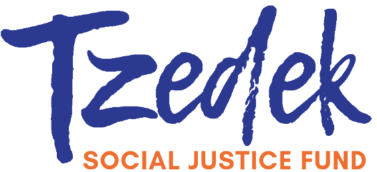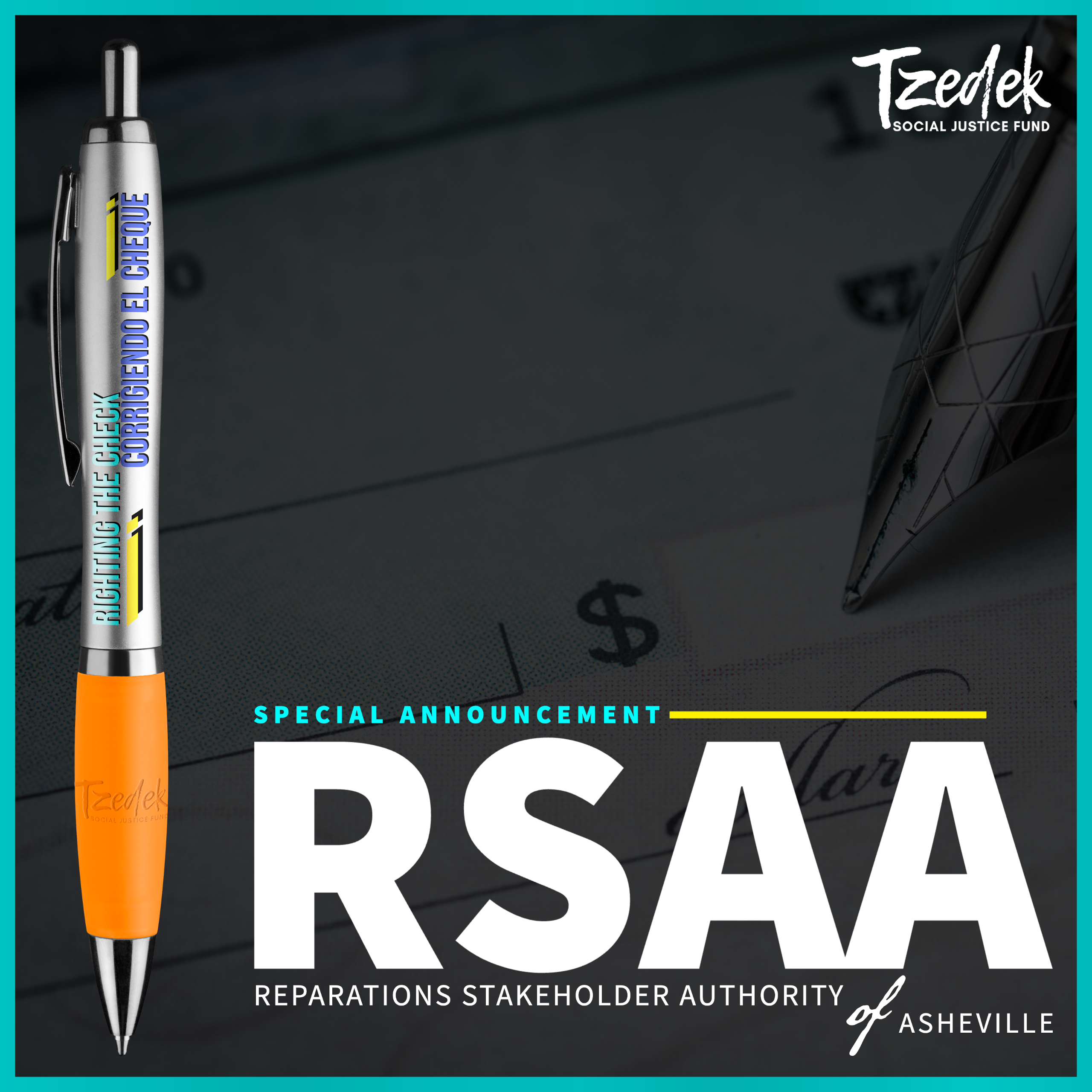Available in Español
We are honored to be based in Asheville, NC where many members of our community have realized the need for reparations. Both the City of Asheville and Buncombe County governments passed historic reparations resolutions in 2020. Later that same year, Buncombe County government passed an additional resolution declaring racism a “public health and safety crisis” that “should be treated with the urgency and funding of a public health and safety emergency.”
Righting History
As a philanthropic organization with a mission of “redistributing wealth, power and resources to support systems change and community healing in Asheville, NC,” Tzedek has both a moral and mission-driven obligation to support the reparations movement for Black residents in our area. While we are proud of the impact we have had in Asheville through our grantmaking, we must also acknowledge that the wealth we distribute was gained, in part, through the benefits of white privilege. We are the beneficiaries of white supremacy and anti-Black racism, not only as recipients of wealth but also by our presence as gentrifiers in the Montford area. Our work to support racial justice does not absolve us from taking responsibility for these privileges.
Modern-day philanthropy sits at a complicated point in our capitalist system, where it is both a tool of support for marginalized communities while also being funded by a financial system that allows the top 1% to hoard wealth to the detriment of the remaining 99%. As Edgar Villaneuva explains in his book Decolonizing Wealth, “The basis of traditional philanthropy is to preserve wealth and, all too often, that wealth is fundamentally money that’s been twice stolen, once through the colonial-style exploitation of natural resources and cheap labor, and the second time through tax evasion. ” Not only is the wealth distributed through philanthropy gained from exploitative systems, our sector’s grantmaking practices are also steeped in white supremacy.
In their 2018 report, the Philanthropic Initiative on Racial Equity found that only 7% of grant dollars goes to funding racial justice and equity work. While the antiracism protests in 2020 inspired many foundations to pledge support to racial justice efforts, emerging data reveals that very few of those foundations followed through with those pledges. We apologize for the role we and our sector have historically played in maintaining systemic injustice. And, in seeking genuine healing, we commit to an apology of action.
Writing History
We believe reparations are a critical first step in correcting the historical inequities created by white supremacist systems specifically designed to codify anti-Black racism into the fabric of American society. Reparations work is not just about writing a check. We aim to right the check, to right history, as We – local communities united in truth, justice, and dignity – write history in real time.
Therefore, as part of our reparations strategy, Tzedek will serve as a fiscal sponsor and incubator for the Reparations Stakeholder Authority of Asheville (RSAA). The RSAA is a Black-led, community-based project that will serve as a Community Reparations Finance Authority in keeping with the Reparatory Justice Model piloted in Evanston, Illinois and certified by the National African American Reparations Commission.
The goal of the RSAA is to provide an infrastructure for Black residents of Asheville and Buncombe County to guide the distribution of funds intended for reparations. The RSAA will administer an Asheville Reparations Community Fund, similar to that created in Evanston. The Fund is intended to be a perpetual resource for Buncombe County’s Black community, to complement the tax revenue stream earmarked by the City and County for initial reparations remedies, and to ensure funding is available for reparations once those tax revenues are no longer available.
Unlike typical fiscal sponsorship agreements that require a fee from the project, we are undertaking this work for free. Tzedek is also providing an initial $100,000 donation to the RSAA to support the hiring of a full-time staff member with benefits to lead this project and transition it into an independent organization led by the Black residents of Asheville and Buncombe County. We invite any individuals, families, businesses, or other institutions interested in making financial reparations to our local Black community to reach out to us through our website.

It is our duty to fight for our freedom. It is our duty to win. We must love each other and support each other. We have nothing to lose but our chains.
Assata Shakur

